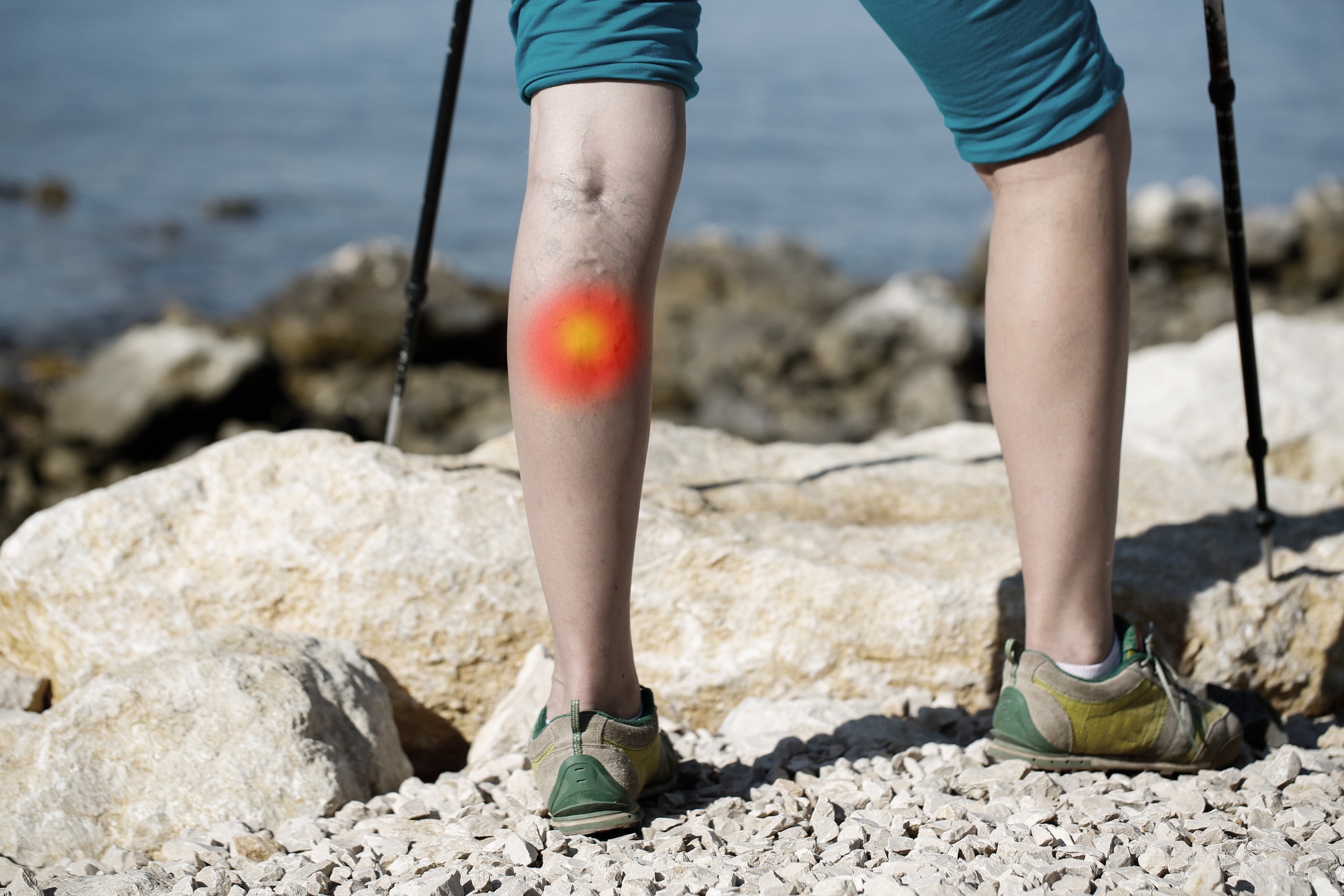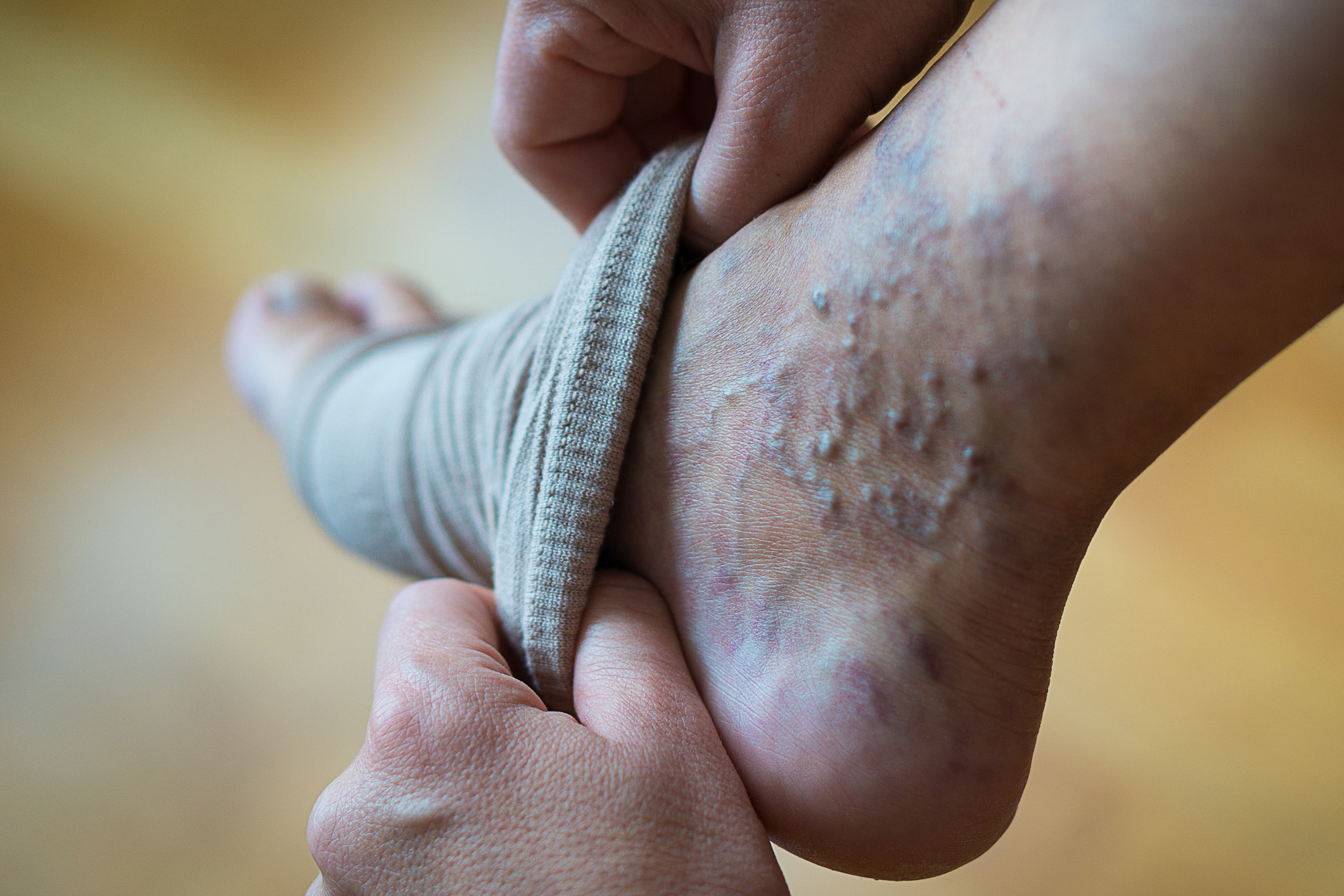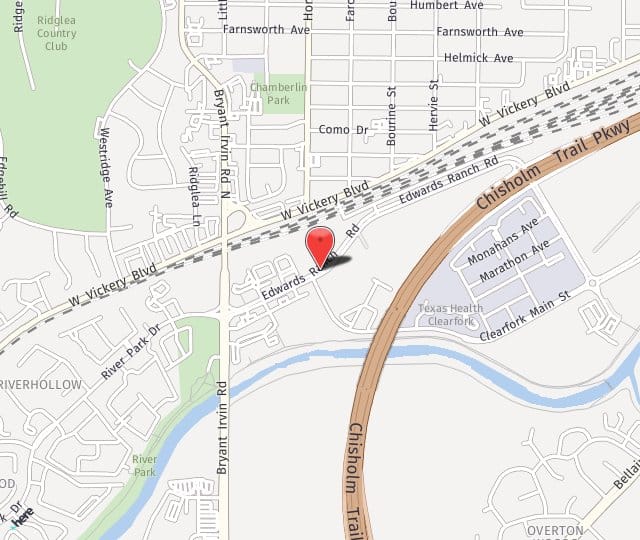Living with varicose veins can be more than just an inconvenience. The swelling, aching, and heavy feeling in your legs can make even the simplest daily activities feel like a chore. Whether you're on your feet all day or spend hours sitting, the discomfort only seems to get worse, affecting your quality of life. If you’re tired of the pain, restless legs, and the way varicose veins make your legs look and feel, Forth Worth Vein Center can help.
Barry Oswalt, MD, FACS, is a board-certified specialist in venous and lymphatic medicine who offers expert care for varicose veins and venous disease. With thousands of minimally invasive, catheter-based, and ultrasound-guided vascular procedures under his belt, Dr. Oswalt brings experience and compassion to each patient he treats. Based in Fort Worth, Texas, he and his team are here to improve your health, comfort, and confidence.
What Are Varicose Veins?
Varicose veins are large, bulging blue veins that can show up anywhere from your thigh to your foot. They are most common in the superficial saphenous veins, which are close to the surface of the skin.
Varicose veins happen when the valves in your veins don’t work properly, so blood flows backward and pools in the veins. Over time, this pressure makes the veins swell, enlarge, and twist.

Pain in your legs from varicose veins is usually caused by the swelling in the veins and the surrounding tissue. In some cases, a blood clot may form in the vein, causing a painful, red lump — a condition known as phlebitis. If you notice these symptoms, it’s important to seek medical attention, as untreated phlebitis can lead to more serious complications like deep vein thrombosis.
Varicose Veins Symptoms
Varicose veins are not just a cosmetic disorder. The veins bulge and stretch, resulting in many unpleasant side effects, such as:
- Heavy and tired legs
- Aching and throbbing pain
- Swelling
- Itching
- Leg cramps
- Restless Leg Syndrome

What Causes Varicose Veins?
Heredity is a primary factor in over 80% of varicose vein cases. Other contributing factors may include pregnancy, obesity, hormone therapy, standing or sitting for long periods of time, and injury. While some of these factors are beyond your control, being aware of them can help you take preventive steps to reduce the likelihood of varicose veins forming or worsening.
Diagnosing Varicose Veins
At Fort Worth Vein Center, we treat vein issues using a stepwise approach. We start by identifying the problem with an ultrasound study of the legs. Once the bad veins are identified, we'll discuss the various treatment options and determine which are the best for you.
Varicose Vein Treatment
Varicose vein treatments seal off the veins with unhealthy valves. Blood circulation then transfers to nearby veins that are working properly. Your body will gradually absorb the closed veins.
Dr. Oswalt performs a number of varicose vein procedures, including:

- Ultrasound-guided sclerotherapy: Involves injecting a solution into the varicose vein guided by ultrasound. This causes the vein to close off and blood reroutes to your healthier veins.
- Radiofrequency ablation: Uses heat from radiofrequency energy to seal off the damaged vein. This minimally invasive procedure allows the vein to shrink and eventually be absorbed by your body.
- Endovenous laser ablation: Delivers laser energy through a small fiber inserted into the vein. The heat from the laser closes the vein, eliminating the varicose vein and improving circulation.
- VenaSeal: Uses a special medical adhesive to close the varicose vein. It's a quick procedure that doesn’t require heat or multiple injections, offering minimal discomfort and downtime.
Recovery and Aftercare for Varicose Veins Treatment
Following treatment, your leg must be supported with compression bandages or graduated support stockings to help the vein walls stick together.
You may need to wear this compression for at least a few days to help reduce post-treatment inflammation and support the recirculation of blood through nearby veins.
To reduce the risk of exaggerated redness and swelling after varicose vein treatment, you should avoid exposure to heat. Keep showers on the lukewarm side as much as possible, and avoid the use of saunas and hot tubs for a few days.
If needed for comfort, take an over-the-counter pain reliever.
Finally, balance rest time with physical activity. Don’t engage in strenuous exercise while your veins are healing, but you can and should take short walks once or twice a day. Doing so supports the new direction of blood flow and also reduces the risk of blood clots that can occur due to inactivity.
Why Choose Forth Worth Vein Center?
Varicose veins aren’t just a cosmetic issue — they affect your daily life and well-being. That’s why Forth Worth Vein Center is fully dedicated to treating venous disease. With over 30 years of experience, Dr. Barry Oswalt has earned a reputation for successfully treating even the most complex cases. Patients come to us for expert treatment because we specialize exclusively in vein conditions.
Our team includes physician assistants, registered nurses, ultrasound technologists, and medical assistants, all working together to provide you with the best possible treatment. Our professionals are passionate about improving your health. We’ll help you move past the pain and discomfort of varicose veins so you can get back to living your life with confidence.
Frequently Asked Questions
Candidates for varicose veins are in good health and are not pregnant or breastfeeding. The patients who visit Fort Worth Vein Center may have multiple varicose veins that are bulging and painful, or they may have newer varicose veins that they want to take care of before they become distended and symptomatic.
Regardless of where you are on this spectrum, Dr. Oswalt and our team can help you determine how to progress toward a life without varicose veins.
Untreated varicose veins put your appearance, comfort, and health at risk. The distention in the veins will not improve. Over time, swelling worsens, and the veins may become even more visible and painful. Other potential consequences of untreated varicose veins include:
- Skin discoloration or hardening due to pooling blood in the vein
- Skin ulcers or wounds that will not heal
- Spontaneous bleeding of a varicose vein near the surface of the skin
- Blood clots from the blood that has accumulated in the varicose vein
Vein treatments all work toward the same goal: to eliminate existing nonfunctional veins. Today’s treatments are very effective but can only treat visible veins.
Visible varicose veins may indicate chronic venous insufficiency, which can cause more vein problems in the future. That’s another reason why it’s so important to adopt healthy habits that support your circulation.
After your vein treatment, we recommend trying to maintain a healthy weight and move your body every day. If you tend to sit for long periods of time, get up every 60 to 90 minutes for a short walk and some calf raises. This bit of extra movement in the lower legs helps press blood up and out of the lower extremities.
After a long day of sitting or standing, elevate the legs by placing them up against a wall or resting on the seat of a chair or sofa while lying on your back on the floor. Like compression, elevation helps move blood out of the legs.
Each vein treatment we offer has been around for years and has consistently achieved great results. Varicose vein treatments have very minor risks for bleeding, infection, skin discoloration, and, in some cases, burns.
When performed by a board-certified specialist, these treatments should only incur mild, temporary side effects like redness and subtle soreness or tenderness. Dr. Oswalt performs a thorough consultation and medical history with each patient to make sure you get the right treatment for your needs.
While you can't completely prevent varicose veins, there are steps you can take to reduce your risk. Regular exercise, maintaining a healthy weight, and avoiding long periods of sitting or standing can help improve circulation and prevent veins from becoming swollen. Wearing compression stockings can also provide support, especially if you're prone to varicose veins. If you have a family history of vein issues, early monitoring and care can help catch any problems before they worsen.
In many cases, varicose vein treatments are covered by insurance, especially if the condition is causing pain, swelling, or other medical symptoms. Cosmetic procedures may not be covered, so it's best to check with your insurance provider to understand your specific coverage.
At Fort Worth Vein Center, we can help you navigate your insurance options and work with your provider to determine what treatments are eligible.
No, varicose veins can vary in size, severity, and symptoms. While some may be small and cause minimal discomfort, others can be large, painful, and associated with more significant health risks. It's important to get a proper evaluation to understand the extent of your varicose veins and get the right treatment.
Varicose veins can affect men and women of all ages. While they are more common in older adults due to factors like aging and pregnancy, younger individuals and men can also develop varicose veins. This is especially true if you have a family history, spend long periods sitting or standing, or have other risk factors.
Losing a varicose vein through treatment is not harmful to your circulation. In fact, removing or closing off a damaged vein helps improve blood flow by redirecting it to healthier veins. The affected vein was already not functioning properly, so eliminating it can alleviate symptoms and improve your leg health.
What People Say About Us!
"I highly recommend Fort Worth Vein Center. Dr. Oswalt and his staff are extremely comfortable to speak with and are very caring. Dr. Oswalt and his assistant have a very calming demeanor during the procedures as they take the time to explain and tell you what to expect and what is being done during each procedure. I have always had problems with my legs and have dealt with varicose veins, pain with the tired heaviness it can cause. There has been such a huge difference in just a matter of weeks. I am incredibly happy with the results. I cannot thank Dr. Oswalt and his staff enough. THEY ARE THE BEST!"
Click here to read more reviews.
Schedule a Consultation Today
If you're interested in learning more about varicose veins, please contact us for a consultation with Dr. Oswalt at 817-536-9600 or fill out our contact form. We will discuss your needs and concerns and determine your best course of action.









